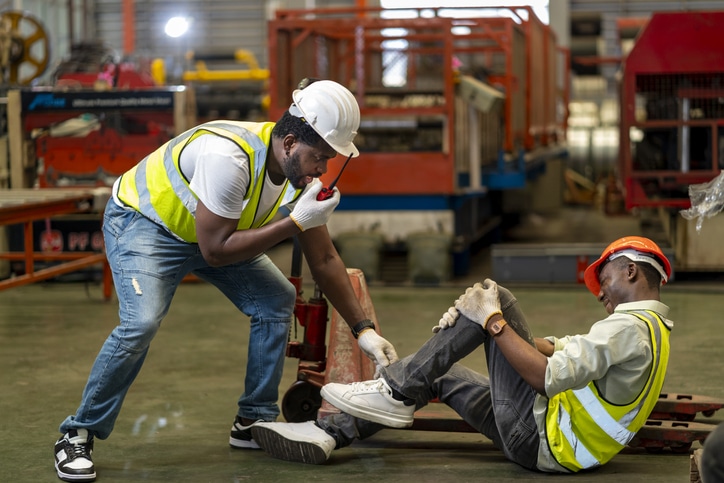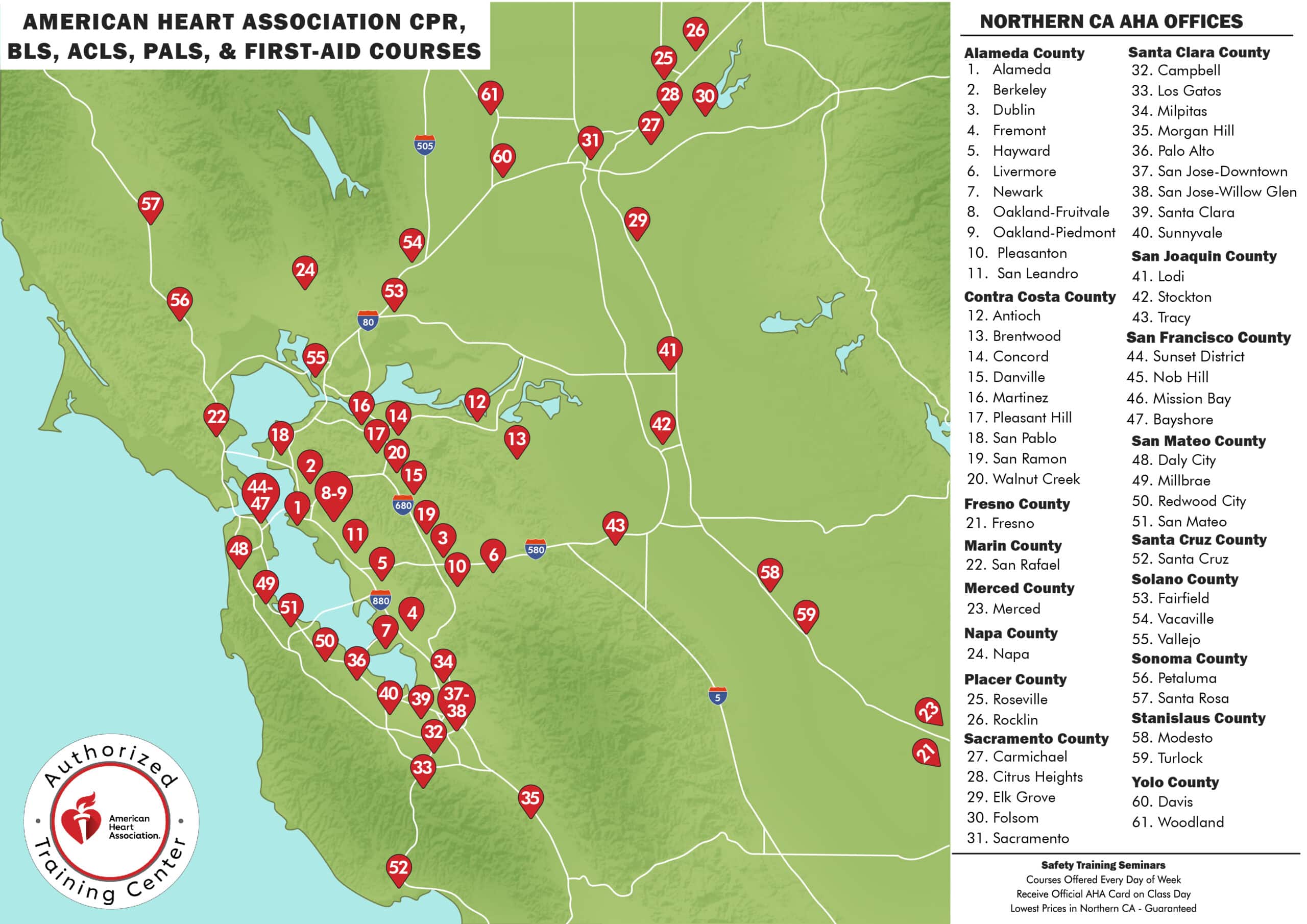American Heart Association© CPR & First-aid Classes in Palo Alto

CPR, AED, And First-aid
Course Name: CPR, AED, and First-aid
Online Course Length: About 2 hours (In your home)
Skills Testing: 30-50 minutes at one of our CPR testing sites
Description: CPR (all ages), AED, bleeding, burns, seizures, epi-pen, etc.
Price: $89 (For Safety Training Seminars certification card)
Upgrade to AHA Pediatric (EMSA approved for child care): Extra $40
Upgrade to American Heart Association certification: Extra $40
When: CPR & First-aid classes are offered Monday – Sunday throughout the day.
Where: Courses are offered in over 60 cities across Northern California.
Card Issuance: You will receive the certification card on the day of class.
Low Price Guarantee: If you find a lower price, we will match the price.
View Upcoming CPR & First Aid Courses in Palo Alto
View CPR & First-aid Courses in Palo Alto & Other Cities Near You

Equipped to Save Lives: CPR & First-Aid Certification Classes in Palo Alto
Cardiopulmonary resuscitation (CPR) and first aid are vital skills that can save lives in emergency situations. Whether at home, in the workplace, or in public settings, knowing how to perform CPR and administer first aid can make a significant difference in someone’s survival. In Palo Alto, California, CPR & First-Aid certification classes are widely available, offering comprehensive training to individuals seeking to acquire these essential skills. This article explores the importance of CPR & First-Aid certification, the offerings of these classes in Palo Alto, and their impact on the community.
The Importance of CPR & First-Aid Certification
Cardiac arrest can happen to anyone, at any time, and immediate CPR can double or triple a person’s chance of survival. Similarly, in emergencies such as choking, severe bleeding, or sudden illness, knowing how to administer first aid can prevent further harm and stabilize the individual until professional help arrives. CPR & First-Aid certification classes teach participants how to recognize and respond to various emergencies, providing them with the confidence and skills needed to act effectively in critical situations.
The Offerings of CPR & First-Aid Certification Classes in Palo Alto
CPR & First-Aid certification classes in Palo Alto are designed to be accessible and informative, catering to individuals from all walks of life. These classes cover a range of topics, including basic life support techniques, the use of automated external defibrillators (AEDs), treatment for common injuries and illnesses, and emergency response strategies. Participants learn through a combination of lectures, demonstrations, and hands-on practice, ensuring that they are well-prepared to handle real-life emergencies.
Impact on the Community
The impact of CPR & First-Aid certification classes extends beyond the individual participants to the community at large. By equipping more people with the skills to respond to emergencies, these classes create a safer environment for everyone. In Palo Alto, a community with a strong emphasis on health and safety, widespread CPR & First-Aid certification can lead to faster response times, improved outcomes for patients, and a greater sense of preparedness among residents.
Conclusion
CPR & First-Aid certification classes in Palo Alto play a crucial role in empowering individuals to respond effectively to emergencies. By providing comprehensive training and practical skills, these classes contribute to a safer and more resilient community. Through education, practice, and a commitment to health and safety, Palo Alto residents can make a difference in the lives of those around them, ensuring that help is always within reach in times of need.
FAQs
Who should attend CPR & First-Aid certification classes in Palo Alto?
CPR & First-Aid certification classes are suitable for anyone who wants to learn life-saving skills, including parents, teachers, caregivers, healthcare professionals, and members of the general public.
How long does a CPR & First-Aid certification course typically last?
CPR & First-Aid certification courses usually span over one to two days, depending on the training provider. The course includes a combination of classroom instruction, skills practice, and hands-on demonstrations.
Is there a renewal requirement for CPR & First-Aid certification?
Yes, CPR & First-Aid certifications are typically valid for two years, after which individuals are required to undergo renewal courses to maintain their certification. Renewal courses often include updates on guidelines and practice of skills.
